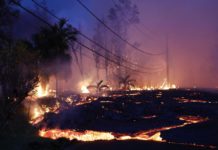Its largest export was coal; the report concluded that North Korea exported $413.6 million in coal in that time frame — $12.7 million above the United Nations cap. North Korea also sold $62.1 million in iron and steel, exports that violated sanctions.
Using front companies, manipulations of automated signals that radar systems use to detect global shipments, and ship-to-ship transfers in the middle of the night, North Korea was able to “give the impression that the coal was loaded in ports other than in the Democratic People’s Republic of Korea,” the report said.
Still, “We’re really forcing the North Koreans to jump through hoops,” said Andrea Berger, a senior research associate and senior program manager at the James Martin Center for Nonproliferation Studies in Monterey, Calif.
“North Koreans are literally physically concealing the identity of ships at night and doing ship-to-ship transfers,” she said. “That’s not something you do unless you have to.”
Financial Transactions Abroad
North Korean firms and individuals, utilizing front companies and working with foreign citizens, have opened bank accounts around the world.
The report said some of the country’s banks “maintain a network of overseas representatives who continue to move freely across borders to undertake transactions in multiple countries and to establish residences abroad.”
The experts found that many banks do not scrutinize account holders closely enough. It cited a “major European bank” that failed to verify answers that a representative of the Korea Daesong Bank gave to a questionnaire to screen for money laundering and ignored the fact that the account applicant appeared in a financial-crimes database.
‘Destabilizing’ Arms Sales
As previously reported, the experts contend that North Korea has shipped supplies to the Syrian government that could be used in the production of chemical weapons. The report also detailed sales of ballistic missile systems, multiple rocket launchers and surface-to-air missiles to Myanmar.
These arms sales are concerning not only because they help the North raise money, but because of “the inherently destabilizing nature of military cooperation that looks like this,” Ms. Berger said.
Surveillance and Hacking
North Korea has become a well-known state actor in surveillance and hacking. The report detailed an incident in which the North sent a drone toward a military facility in Seongju, South Korea, and snapped 555 photographs. The drone crashed because of an engine malfunction and was recovered by South Korean intelligence.
The report also indicated that some of the email accounts of the United Nations experts had been hacked or that the North had tried to hack their accounts.
Credit
Eric Talmadge/Associated Press
Stealthy Imports of Oil
Last December, the United Nations Security Council tightened sanctions against North Korea by cutting the amount of refined petroleum it can import each year by 89 percent.
Yet the experts found that North Korea had developed a sophisticated network of intermediaries willing to help it procure oil.
“If anything, the sanctions are making it more lucrative for these intermediaries,” said John Nilsson-Wright, a senior research fellow at the London-based Chatham House at the Royal Institute of International Affairs, because North Korea will pay a higher price to circumvent the sanctions.
Art in Beijing, $20,000 and Up
A North Korean gallery in the fashionable 798 Art District in Beijing was closed by the Chinese Ministry of Commerce in January. The Mansudae Art Studio, run by the North Korean state agency responsible for art, sold oil paintings of beaming factory workers, bronze sculptures in the social realism style and tourist kitsch like postage stamps and currency.
In a prestigious spot across from a branch of the top-drawer Pace Gallery, the gallery showed paintings with price tags of $20,000 and up. The United Nations report said it operated as a joint venture between North Korea and a Chinese partner, and for that reason the Chinese government had agreed to close it.
Source : Nytimes













